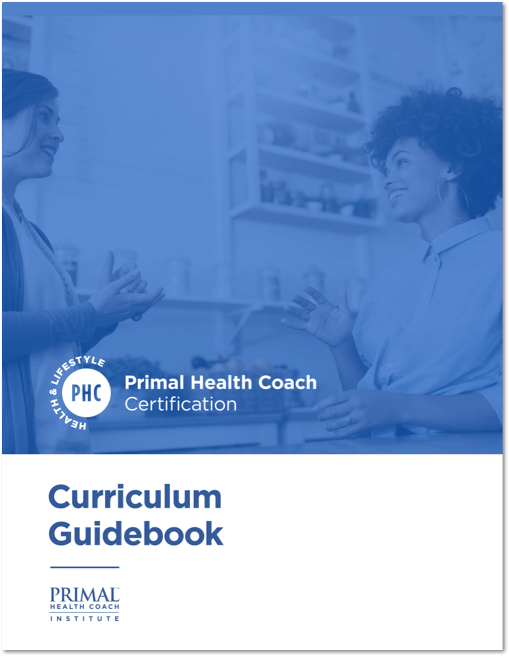If you’re a health coach, personal trainer, or wellness professional, you’ve probably wondered how to get referrals to grow your business.

Understanding how to get referrals could be the missing link to your marketing strategy.
Attracting new clients can be challenging, and while traditional advertising and social media marketing have their place, nothing beats the power of word-of-mouth. A well-planned referral marketing strategy turns your satisfied clients into advocates; sending new referral clients your way and helping your business thrive.
In this guide, you’ll learn how to get referrals with ease. From understanding what a referral really is, to creating a successful referral program, tracking your results, and expanding your referral network.
What Is a Referral and Why Is It Important?
A referral is simply a recommendation, but it carries weight that no ad ever could. Understanding how to get referrals could be the boost your business needs to thrive. Referrals can come from a satisfied client, a colleague, or even another business suggesting your services to a potential client. They might be personal recommendations, job referrals, or glowing online reviews on social media platforms.
High-quality referrals matter because they come preloaded with trust. Referred clients already believe in your expertise. They’ve heard about your exceptional customer service, your commitment to results, and your ability to make real change.
In short, referrals are credibility multipliers. They don’t just bring in new clients; they strengthen your reputation and grow a loyal customer base.
Benefits of Getting Referrals
Understanding how to get referrals is only one piece of the puzzle. It's important to know that getting referrals isn’t just about filling your calendar. A strong referral marketing effort brings lasting benefits through:
- Increased credibility and trust: People believe friends and family over ads every time.
- Higher conversion rates: Referred clients are already sold on your value.
- Cost-effective marketing: A well-structured referral system delivers more while costing less.
- Stronger loyalty: Clients who refer others are deeply invested in your success.
- Organic brand advocacy: Referred clients often become your biggest champions. Sharing your message, expanding your reach, and attracting high-quality referrals.
Types of Referrals
There’s no one-size-fits-all when it comes to referral marketing. Here are some common types that can help you diversify your strategy:
- Word-of-mouth recommendations: Still the gold standard, as nothing beats personal conversations.
- Online reviews: Glowing feedback on Google, Yelp, or Facebook acts as powerful virtual referrals.
- Social media posts: Tagging, sharing, and recommending your business broadens your audience.
- Customer referral programs: Structured incentives. This includes gift cards, free products, or premium upgrades, as they motivate clients to refer others.
- Professional referrals: Local business owners, strategic partners, and influencers can all refer clients your way.
Steps to Take Before Asking for Referrals
Before you start asking, you need the right foundation. Trust and connection always come first.
Here's our list of strategies to take before asking for referrals:
- Deliver exceptional service: Excellence drives enthusiasm. Clients who experience outstanding results can’t help but talk about it.
- Build genuine relationships: Get to know your clients, understand their goals, and show that you value their trust.
- Engage consistently: Share valuable content through blogs, newsletters, and social media to stay visible.
- Seek feedback: Regular surveys or personal check-ins make clients feel heard—and happy clients refer.
When people feel seen, supported, and successful, they’ll naturally want to share your name.
Tips on How to Get Referrals
Once your foundation is solid, it’s time to confidently ask for referrals. Here’s how to do it gracefully:
- Be specific: Replace “Tell your friends” with “If you know someone who wants to improve their health, I’d love to help.”
- Offer incentives: Rewards like free access, gift cards, or bonus sessions show appreciation.
- Highlight your referral program: Make your customer referral program clear, simple, and rewarding.
- Ask at the right time: The best time is right after a win, when your client is feeling motivated and grateful.
- Celebrate your referrers: Recognize top supporters publicly (with permission) to inspire others.
Following Up and Saying Thank You
Follow-up is the heartbeat of every successful referral program. Here's how to do it with ease:
- Thank your referring customer personally: A genuine note or small gesture goes a long way.
- Keep them in the loop (when appropriate): So they know their referral made an impact.
- Use referral links: This will streamline the process and make it easy to share.
- Celebrate successes: Recognition reinforces loyalty and encourages more referrals.
A heartfelt thank-you can transform a one-time referrer into a lifelong advocate.
Tracking and Measuring Success
Tracking your referral marketing efforts is where strategy meets insight. You can’t grow what you don’t measure. Here's our top tips for tracking and measuring your referral success:
- Referral program software (like ReferralCandy) helps track clicks, referrals, and conversions.
- Customer referral agreements clarify incentives and expectations.
- Conversion rates show how referred leads perform compared to others.
- Client feedback surveys identify which referral sources are most effective.
A data-driven referral strategy helps you double down on what’s working and refine what’s not.
Expanding Your Referral Network
Referrals can come from anywhere. The key is to think bigger than your current client list by:
- Attend networking events: Build new professional relationships with peers and partners.
- Collaborate with local businesses: Gyms, wellness centers, and nutritionists are natural allies.
- Leverage LinkedIn: Optimize your profile and stay active where professionals connect.
- Partner with influencers: Align with people whose audiences mirror your ideal clients.
- Stay visible online: Regularly post valuable insights on social media channels to stay top of mind.
Every new relationship is a potential referral opportunity. Remember to treat them that way.
Overcoming Referral Challenges
Even seasoned professionals face obstacles. Common referral hurdles include:
- Clients who hesitate to mix business and personal relationships.
- Low engagement in your referral campaigns.
- Tracking issues with referral clients.
Solutions:
- Make the process simple, by providing easy referral links and clear instructions.
- Offer meaningful incentives and public appreciation.
- Gently remind satisfied clients they can help others.
- Continue delivering exceptional customer experiences to inspire organic referrals.
Persistence pays off when it comes to referrals. Referrals grow exponentially when nurtured with care.
Conclusion: Why Referrals Matter
Understanding how to get referrals isn’t just about marketing; it’s about building community and trust. A thoughtful referral strategy fuels sustainable growth, strengthens your brand, and deepens client loyalty.
By investing in referral marketing efforts, providing standout service, and tracking your results, you’ll create a referral program that supports lasting success.
Every referred client has the potential to become a repeat customer. When you master referrals, you’re not just growing a business; you’re building a network of belief, loyalty, and shared success.
So, what are you waiting for? Start today! Build your referral system, nurture your existing customers, and watch your business thrive through the power of referrals.



